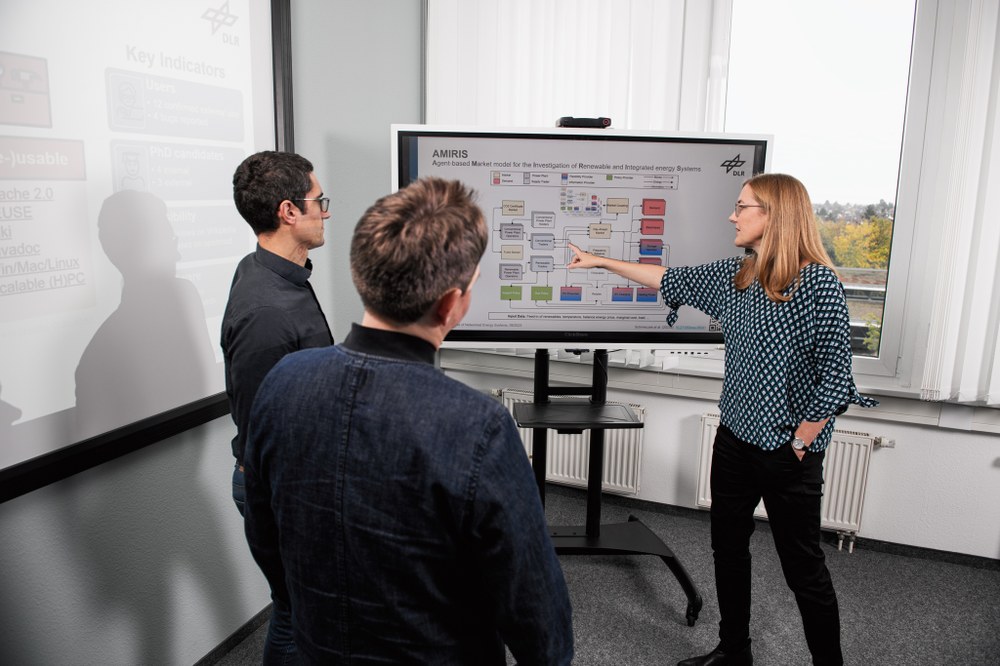Energy Systems Analysis
The Energy Systems Analysis department generates system-analytical knowledge, which we provide across sectors up to the global level and based in part on methods and modelling tools developed in-house.

The future energy systems are based on a large number of actors who provide, store or flexibly demand renewable energy sources. Any regulatory framework has to ensure appropriate incentives for sufficient investment and system-friendly behaviour of the actors. In order to identify both effective and efficient framework conditions for the transformation of the energy sector, the Energy Economics research group analyses the effects of energy policy instruments on the electricity market and at a macroeconomic level.
In particular, the research group uses the method of agent-based modelling. It This allows to consider the strategic, economic behaviour of actors under uncertainty and incomplete information in electricity market analysis. This approach quantifies the influence of socio-economic aspects in decision-making of actors on the electricity market, for example on the development of the market values of renewable energies. To investigate macroeconomic effects of the energy transition, the method of agent-based modelling is combined with stock-flow consistent (SFC) modelling.
With the agent-based electricity market model AMIRIS, the group has been developing a tool that enables analyses of the complex issues relating to future electricity markets, their design and energy policy instruments. The open source model is also increasingly being used by users outside the institute. To analyse the macroeconomic effects of the energy transition, the research group has developed sfctools, a framework for the development of macroeconomic agent-based models, which is also available open source.
